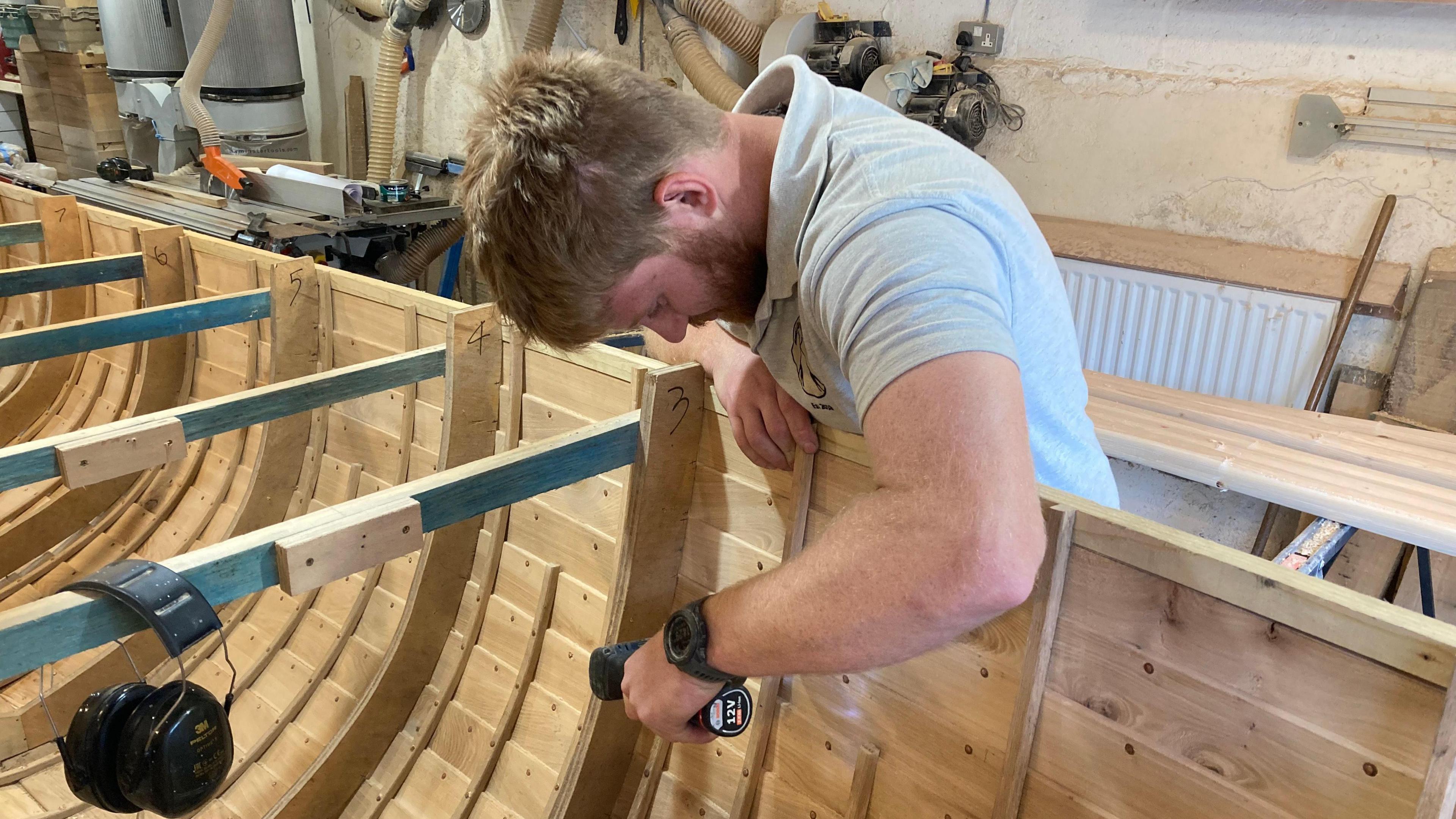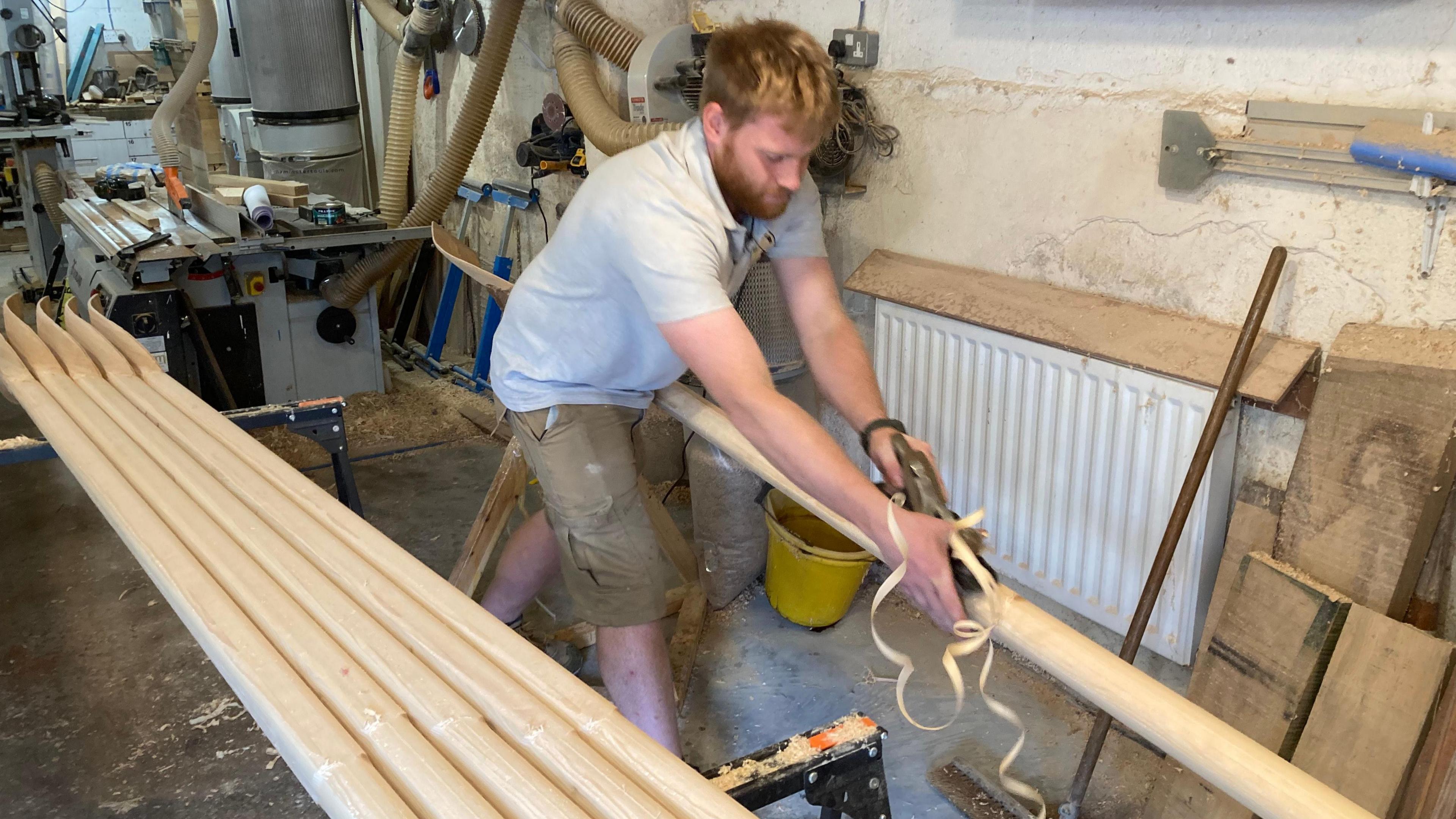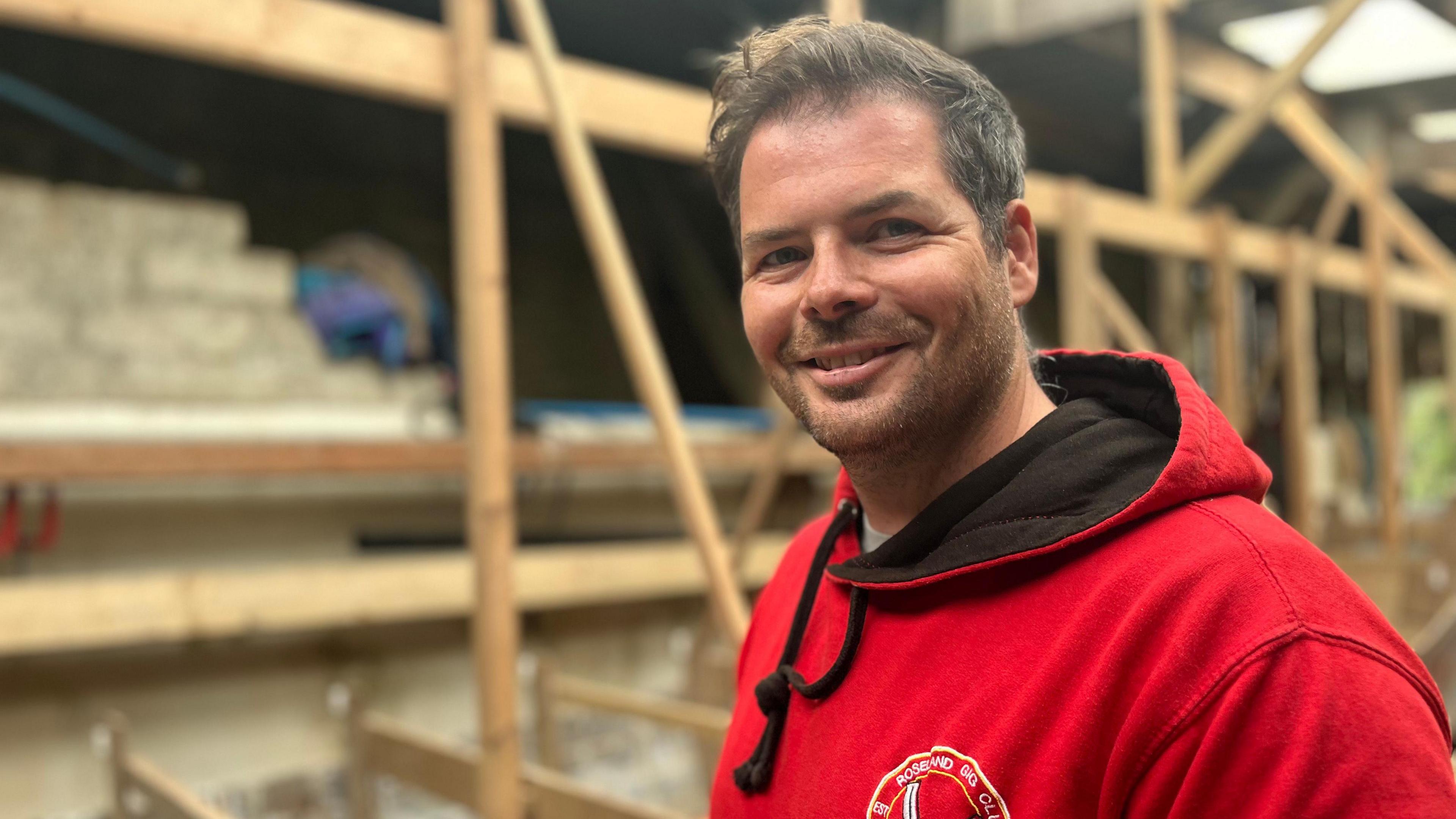Pilot gig builders facing rising costs

Finding good material and the cost of it is proving difficult for wooden boat builders
- Published
Pilot gig boats rowing across the sea are a sight many love watching, but the vessels' builders said construction costs were making their job harder.
The Cornish Pilot Gig Association (CPGA) said the sport had grown from 10 clubs 30 years ago to more than 90 around the world.
But builders said making the boats, which have specific requirements for competitions, had become an expensive job.
Many have also said a lack of quality wood had become a big problem.

Harry Poulson said he had to do a lot of shopping around for decent material
Boats used by gig rowers have to be made from elm and oak, be 32ft (9.75m) in length and require about 3,500 copper nails.
Harry Poulson, a wooden boat builder based near Looe, said prices for wood and copper had risen.
"You have to do a lot more shopping around and going up to the middle of nowhere in places like Scotland to look at wood," the 28-year-old said.

Will Semken said keeping gig rowing's heritage going was important
Roseland Gig Club member Will Semken has been helping restore one of its boats - the William Peters.
The 33-year-old civil servant said he wanted to spend more time building wooden boats, although the costs made it a one-man job.
Mr Semken said: "You spend so much time searching for faster boats, but we want to maintain our old heritage boats too."
Skills challenge
Retired gig builder Maurice Hunkin said he sometimes had to travel from Cornwall to Northampton to look at wood.
Mr Hunkin, now a CPGA standards officer, believed the problem starts from when trees are felled.
"The problem is, when a tree is felled in the forest, it tends to get sawed into firewood rather than what boats need," the 76-year-old said.
CPGA trustee Norma Edwards said there were also other problems to contend with.
This included finding people to build the gigs, with the number of people in the job falling in recent years.
Follow BBC Cornwall on X (formerly Twitter), external, Facebook, external and Instagram, external. Send your story ideas to spotlight@bbc.co.uk, external.